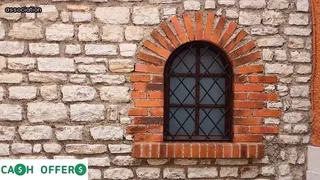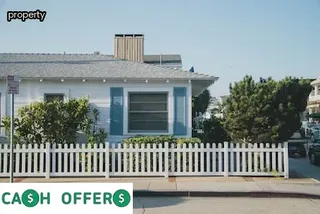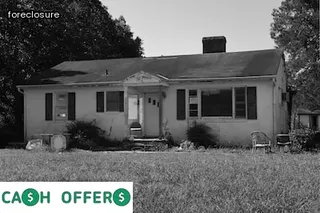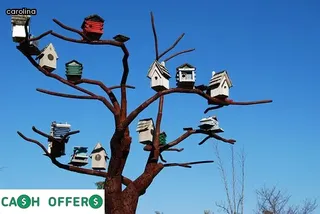When it comes to Homeowners' Associations (HOA) and Condominium Owners' Associations (COA) in North Carolina, it is important to understand the lien laws that could potentially lead to foreclosure. A lien is a legal right by an association or lender that allows them to take possession of a property if payments are not made on time.
In North Carolina, HOAs and COAs are legally allowed to file a lien against an owner's property if they have failed to pay any fines or assessments and the amount due has been declared delinquent by a court of law. Without paying off the amount owed, the association can then initiate a foreclosure action that would result in the owner losing their home.
Knowing how HOA and COA lien laws work in North Carolina can help homeowners avoid foreclosure by taking steps such as properly maintaining their accounts and ensuring any dues or assessments are paid on time.

It can be a devastating experience to have one's home foreclosed on by their HOA or COA in North Carolina. Fortunately, there are steps that homeowners can take to avoid such a fate.
Before signing any contract with the HOA or COA, it is important to read through all of the documents carefully and ensure that one understands the terms of agreement. Knowing what rights and responsibilities are associated with being a homeowner in the community is also essential for avoiding foreclosure.
In addition, if payments are required for dues, fines, or assessments, they should be made promptly as outlined in the agreement. It is also important to stay up-to-date on any changes or updates to rules and regulations set forth by the HOA or COA so that homeowners remain compliant.
Lastly, homeowners should always reach out to their HOA or COA if they ever find themselves struggling financially so that alternative arrangements can be discussed before foreclosure becomes an option.
If you live in North Carolina and are facing a potential foreclosure from your Homeowner's Association (HOA) or Community Owner's Association (COA), it is important to understand the process and the steps that can be taken to avoid foreclosure. The first step is to understand the terms of your HOA agreement, including when dues are due and any late fees or penalties associated with missed payments.
It is also important to be aware of any notices from the HOA regarding unpaid dues or late fees and how long you have before a lien is placed on your property. Knowing what kind of notice you must receive from the HOA prior to foreclosure will give you an idea of how much time you have if payments cannot be made.
It may be possible to negotiate a payment plan or other arrangement with the HOA for overdue dues, which could help avoid foreclosure. Additionally, it is important to seek legal advice as soon as possible if you are facing foreclosure, so that all options can be explored and a solution found that works for both parties.

Mortgages in North Carolina can be complicated when homeowners association (HOA) or condominium association (COA) liens are involved. Homeowners must understand their rights and obligations under the law to protect their property from foreclosure due to unpaid assessments or fees.
A lien can be placed on a property if an HOA or COA has not received payment for assessments, dues, fines, or legal fees. If payments are not made, the lien may become foreclosable and the homeowner could lose their home.
In some cases, these liens have priority over other creditors' claims such as mortgage lenders. Knowing the implications of an HOA or COA lien is essential for homeowners in North Carolina to avoid foreclosure of their property.
Understanding the details of the agreement between an HOA or COA and homeowners is paramount to preventing a foreclosure situation due to nonpayment of assessments and dues. It is important to stay current on all payments and fulfill any other requirements stated in the agreement with an HOA or COA in order to avoid a foreclosure of your home in North Carolina.
Being faced with the potential of an HOA foreclosure is a scary proposition, and it is important to understand the consequences that could result. Foreclosure by an HOA can lead to financial hardship, as well as damage to your credit score and reputation.
In addition, you may be faced with costly legal and court fees when attempting to contest a foreclosure. In North Carolina, there are steps that you can take to avoid an HOA foreclosure, such as making sure that any payments due to the HOA are paid on time and in full.
Furthermore, understanding and adhering to the rules outlined by your particular Homeowners Association is essential in preventing an HOA foreclosure from occurring. Knowing what steps must be taken in order to avoid an HOA foreclosure will help ensure that your finances remain secure, as well as preserving your good standing with other members of your Homeowners Association.

In North Carolina, homeowners associations (HOAs) have the right to foreclose on a home if the homeowner is behind in their fees. This can be a daunting prospect for many of us, but there are steps that can be taken to avoid foreclosures and keep your home safe.
Understanding how a foreclosure works and being aware of your rights as a homeowner can help you stay ahead of any potential issues with an HOA foreclosure. Knowing what the HOA payment process involves, such as fines and liens, can help you assess whether or not your situation may lead to losing your home.
It’s also important to know about any state-mandated laws that may protect you from unfair or illegal practices by HOAs. Lastly, finding out what kind of payment plan options are available for delinquent payments is key to avoiding an HOA foreclosure.
Taking these steps will help ensure that you don’t run into trouble when it comes to protecting your home from an HOA foreclosure in North Carolina.
When dealing with a Homeowners Association (HOA) in North Carolina, it is important to be aware of the potential for a lien being placed on your property. A lien may be imposed by an HOA as a result of unpaid dues or assessments, which can eventually lead to foreclosure.
To avoid this situation, homeowners must take the necessary steps to ensure that all fees are paid in full and on time. It is also important to understand the particular laws and regulations governing HOAs in North Carolina, which may include rules regarding how long liens remain active and when foreclosure proceedings can begin.
Additionally, it is important to review any documents related to membership in an HOA, as these can provide insight into potential penalties that could be imposed for non-payment of fees. Knowing these details upfront can help homeowners make informed decisions about their financial obligations and plan accordingly to avoid situations such as foreclosure due to an unpaid lien.

When an HOA lien is placed on a home, it can be difficult to understand the potential consequences. A mortgage is a loan that allows homeowners to purchase real estate and then repay the loan over time with interest.
In some cases, HOA fees are included in the mortgage payment. When these payments go unpaid, an HOA lien may be placed on the property.
This lien is the legal right of an HOA to take ownership of a home if certain conditions are not met. In North Carolina, if an HOA forecloses on your home, you could lose your property and all of your equity in it.
It is important to understand how mortgages work and their impact on an HOA lien so that you can protect yourself from foreclosure and keep your home safe from repossession. Being knowledgeable about mortgages will help you identify any signs of default or delinquency before they become a problem, allowing you to take steps to avoid foreclosure and retain ownership of your home.
In North Carolina, homeowners can take steps to avoid an HOA foreclosure. The most effective strategy is to stay current on your HOA fees and assessments.
This means paying them on time and in full, as well as staying up-to-date with any penalties or late fees that you may owe. Additionally, if possible, try to build a positive relationship with your HOA board and property management company.
Having open communication channels can help you find out about any potential issues or changes before they become a problem. If you are already facing an HOA foreclosure, then consider seeking out legal advice from an attorney who specializes in real estate law.
It's important to be proactive and act quickly before the process progresses too far. Finally, make sure to document all correspondence with your HOA board or property management team so that you have a record of your attempts to resolve the situation.
By taking these steps, North Carolina homeowners can protect their property from an HOA foreclosure.

When a homeowner association (HOA) forecloses on your home in North Carolina, it can be difficult to recover. You may have to pay the entire amount of the loan plus any interest and fees, and you may have to give up ownership of your property.
The consequences following an HOA foreclosure include lowering your credit score, having difficulty in securing future financing, and potential legal action taken by the HOA. If you are unable to make payments on time or fail to address violations of the HOA’s rules, you risk foreclosure that could damage your credit rating for years.
It is important to keep up with payments and promptly respond to any violations in order to protect yourself from the serious consequences that follow an HOA foreclosure. Taking proactive steps such as talking with a lawyer about how best to handle any issues with the HOA can help you avoid foreclosure and maintain financial stability.
In North Carolina, homeowners should be aware that their Homeowners Association (HOA) can foreclose on their home if they are unable to pay their dues. To avoid this situation, homeowners should take several proactive steps.
First, they should stay up-to-date with payments and review the budget of the HOA to ensure they are making payments that cover the cost of operations. Second, it is important to read through the HOA's bylaws and regulations so they understand what is expected of them and any potential consequences for noncompliance.
Third, homeowners should maintain good communication with their HOA board and respond to any inquiries or requests in a timely manner. Finally, when there are disputes or disagreements between owners and the HOA board, it is helpful to obtain legal advice from an experienced attorney to understand your rights and options for resolving such issues.
Taking these steps will help ensure that homeowners do not find themselves facing foreclosure from their HOA in North Carolina.

North Carolina's House budget includes pay raises and infrastructure improvements, both of which are important components for a healthy economy. Analyzing the budget requires an understanding of how the state allocates its resources, as well as what can be done to prevent foreclosure.
Foreclosure is a serious issue in North Carolina, as it can lead to lost homes and financial hardship for families. To avoid foreclosure, homeowners can work with their lender to develop a payment plan that works for both parties, or consider refinancing their mortgage loan to reduce monthly payments.
Additionally, they can take advantage of government programs such as U. Department of Agriculture Rural Development, Federal Housing Administration loans, or Veterans Affairs home loans.
Utilizing these resources may help keep homeowners in their homes and out of foreclosure proceedings. Understanding the various options available is key to avoiding foreclosure in North Carolina and keeping families in their homes.
In North Carolina, a homeowner’s association (HOA) can foreclose on your home if you fail to pay your dues. If you are late on payments, the HOA can take legal action to take possession of your property.
Though this seems daunting, there are ways to avoid foreclosure by a homeowners association in North Carolina. Knowing what steps to take and when is key for any homeowner who is behind on their payments.
It's important to be aware of the laws and regulations imposed by the state that govern HOAs and how they can foreclose on your home in North Carolina. Understanding the consequences of not paying dues and having a plan in place to prevent foreclosure are essential steps for avoiding an HOA foreclosure in North Carolina.
By staying informed about HOA guidelines and taking proactive measures, homeowners can protect themselves from an unwanted foreclosure by their HOA in North Carolina.

An Hoa, or Homeowners Association, is a powerful entity in North Carolina that can have a significant impact on the lives of homeowners. In some cases, an HOA may even have the power to foreclose on a home if certain obligations are not met.
In North Carolina, an HOA has the right to impose and collect assessments for common expenses as well as enforce deed restrictions and other governing documents related to homeownership. They also have limited powers of enforcement such as fines, liens, and foreclosure proceedings against members who fail to comply with their governing documents.
To avoid a potential foreclosure from an Hoa in North Carolina, it is important for homeowners to be aware of their rights and responsibilities under their governing documents. This includes understanding when assessments are due and paying them on time, following all applicable rules and regulations set forth by the HOA, and knowing when the HOA can exercise its power of foreclosure.
Knowing these details can help protect homeowners from any unexpected legal action or financial burden resulting from an HOA's foreclosure powers.
When it comes to homeowners associations (HOAs) in North Carolina, many are unaware of their rights and responsibilities. In particular, an HOA's ability to evict a homeowner from their home is often misunderstood. An HOA cannot foreclose on a property; however, they can pursue an eviction if certain rules are violated.
Understanding the legal process for evictions and how to prevent them is key for NC homeowners. Homeowners should be aware that HOAs have the right to enforce the terms of their governing documents, such as CC&Rs or bylaws. These documents outline all expectations of members, such as payment of dues and assessments and adherence to community rules.
If a homeowner fails to comply with these expectations, they may face an eviction suit. This process begins with a violation notice, followed by attempts at resolution before pursuing a court-ordered eviction.It's important for homeowners in North Carolina to know how to avoid an eviction suit from their HOA.
Keeping up with dues and assessments payments is paramount, but understanding the community rules set forth in governing documents is also key. Homeowners should also make sure any disputes with the HOA are handled through proper channels as outlined in these documents - this can help mitigate any issues before they become serious enough for an eviction suit. Having a clear understanding of what an HOA can do when it comes to evictions is essential for North Carolina homeowners; learning how to avoid them will help ensure peace between neighbors and smooth operations within communities governed by HOAs.
The statute of limitations on Homeowners Association (HOA) dues in North Carolina is important to know if you want to avoid foreclosure. Under North Carolina law, the HOA can only pursue collection of unpaid dues within a certain period of time.
This period is known as the statute of limitations. In North Carolina, the statute of limitations on HOA dues is three years.
This means that after three years have passed, the HOA cannot legally pursue action against you for any unpaid dues. It is important to be aware of this limitation so that you can adequately plan ahead and ensure that all your payments are made on time in order to avoid potential foreclosure from an HOA.
If you find yourself facing potential foreclosure from an HOA, it may be in your best interest to contact a local attorney for advice and assistance with the situation.